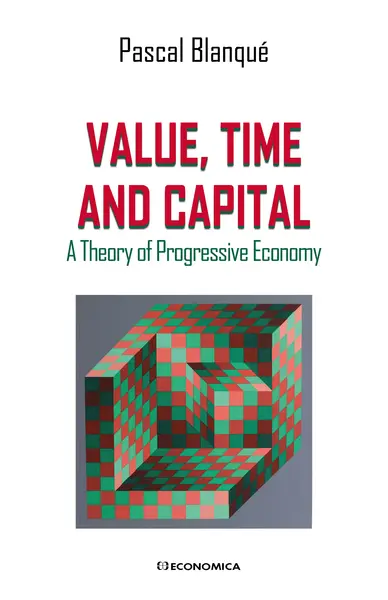en savoir plus

Permet à tous ses détenteurs d'obtenir 5% de réduction sur tous les livres lors du retrait en magasin (réduction non cumulable avec les réductions de type étudiant).
Offre également un certain nombre d'avantages auprès de nos partenaires.
Avec les favoris, retrouvez dans un espace les sélections effectuées au fur et à mesure de vos navigations dans le site.
Constituez pour votre usage personnel vos listes de livres en prévisions d'achats futurs et votre sélection d'articles, dossiers, événements, vidéos ou podcasts préférés ou à découvrir plus tard...
Il suffit simplement de cliquer sur "Ajout Favori" sur chaque page qui vous intéresse pour les retrouver ensuite dans votre espace personnel.
Requiert un compte Mollat
Requiert un compte Mollat
Value, time and capital : a theory of progressive economy
Auteur : Pascal Blanqué
en savoir plus
Résumé
Une théorie économique qui intègre le temps psychologique et les comportements irrationnels dans l'analyse des surplus et de l'équilibre. Elle relativise le caractère programmé de la surproduction, redéfinissant ainsi la dynamique du taux marginal de substitution et la formation de la valeur en fonction de la durée. La dernière section s'attaque aux analyses de Maurice Allais dans ce domaine. ©Electre 2026
Quatrième de couverture
This workproposes to restate the theory of surpluses by taking into account observed situations of the creation and liberation of surpluses which clearly break the rules and norms of accepted rationality. It presents a general theory which incorporates these situations which are not accepted within the classical hypotheses.
This theoretical framework incorporates psychological time in the analysis of surpluses and of the resulting equilibrium in the wake ofWalras, Dupuit, Pareto, Marshall, Hicks and Allais. The concept of substitution, together with the resulting dynamic of the marginal rate of substitution, are redefined on the basis of the specific referential of a psychological nature, which constitutes the economic Subject and its action, and is structured by duration, memory and forgetfulness. Although we appear to be substituting goods, quantifies and physical matter - and this is often the case - it is always a question of substituting time, value-times, matter-time, units of memory and duration.
The work thus proposes an HRSLR approach (Hereditary, Relative, Subjective and of Limited Rationality hypothesis) to the « consumer » demand function. We define the notion of a fundamental price on the basis of the relationship between the instantaneous price and the perceived psychological value-time. We posit an analogy between (i) marginal rates of substitution ; (ii) marginal rates of increase or slowdown in the perceived psychological value-times ; and (iii) marginal rates of accumulation or decumulation of memory.
In real life, we are not dealing with aberrations but with fields of choice which are not always convex and with marginal rates of substitution which are not always decreasing. The situations of concavity and of increasing psychological returns are sufficiently numerous for the theory to try and incorporate them within the framework of a limited rationality. The understanding of events which are simply presented as « irrational » can only stand to gain from this.
Fiche Technique
Paru le : 06/06/2019
Thématique : Essais d'économie
Auteur(s) : Auteur : Pascal Blanqué
Éditeur(s) :
Economica
Collection(s) : Non précisé.
Série(s) : Non précisé.
ISBN : 978-2-7178-7077-0
EAN13 : 9782717870770
Reliure : Broché
Pages : 122
Hauteur: 25.0 cm / Largeur 16.0 cm
Épaisseur: 1.7 cm
Poids: 380 g

